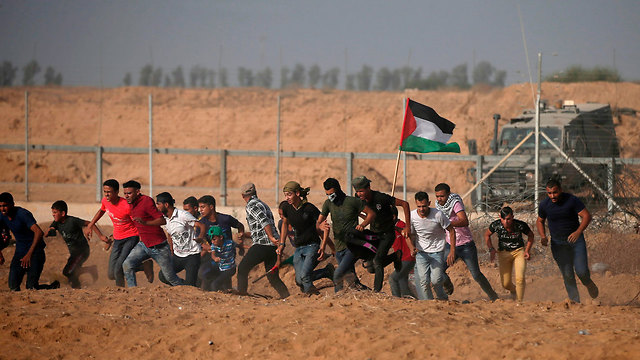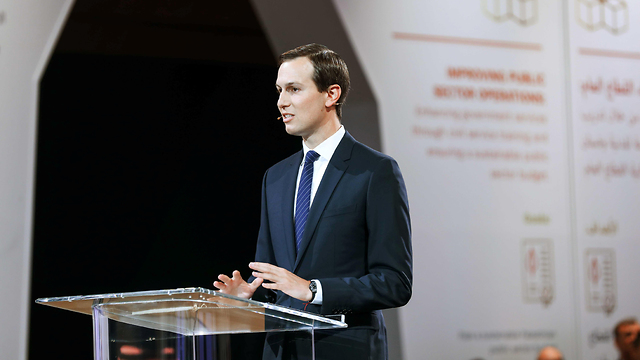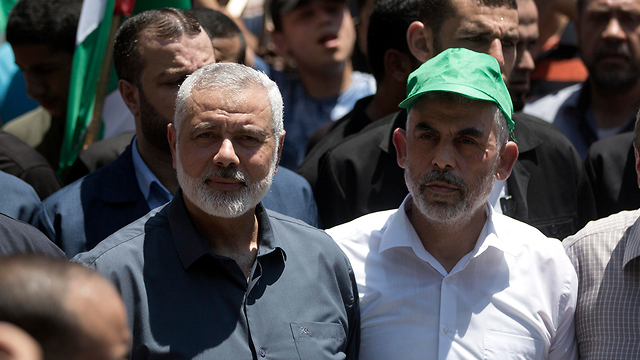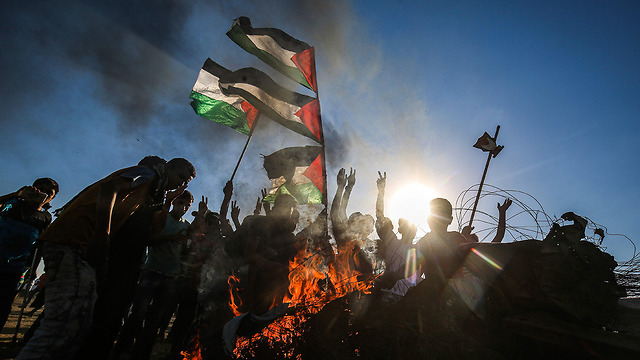

The drums of war are beating weakly in rudderless Gaza
Analysis: Hamas is sticking to its agreement with Israel for now, but while there is no real appetite for war on either side, the lack of a decent long-term solution for the Strip and a dearth of genuine economic advances could make potential Iranian nudges towards violence seem like the least-bad option
After two weeks of relative quiet, Gaza once again exploded into the Israeli consciousness.
And once again, the tensions have spiraled a week before the arrival of the money from Qatar. And once again it was in the wake of a tactical error (this time Israel killed a Hamas activist who had been dispatched to the border to curb the rioters at the border fence).
And once again the rhetoric increased until the Egyptians arrived to calm the situation in Gaza over the money that was en route, the import of medicines, increased work permits and even the construction of a new hospital.
Gaza is a chronic, continuous calamity with no good solution, only a series of bad and worse interim ones. We will not be seeing Singapore-style protests here in the near future, despite Jared Kushner's sparkling presentations in Bahrain.
It is impossible to trigger an economic breakthrough in an area controlled by an Islamist militia whose raison d'être is the liberation of Palestine, and which is on a footing for war and destruction every few weeks. At most, one has breathing room.
The Hamas leadership is still following the path of the current agreement with Israel, but there are those in the organization who feel that they are on a treadmill – walking and walking without getting anywhere.
The simple Gazans do not see any improvement in their lives, and the entire Gaza Strip exists from one round of Qatari handouts to the next, essentially living hand to mouth.
Internal tensions within the organization's leadership also rose to the surface over the weekend when Fathi Hamad, the extremist head of Hamas in the northern Gaza Strip, gave Israel a week-long ultimatum to comply with the group's demands.
Ahmed Yosef, a close associate of Hamas political leader Ismail Haniyeh, publicly scolded Hamad for his remarks.
"The language of knives and explosive belts is not suitable for statesmen," he said. "And the talk of killing Jews using this kind of language contradicts religion and morality."
In general, this internal discourse in Gaza reflects a loss of direction. The "March of Return" campaign of weekly protests has grown tired, the public has lost interest, but no one has the courage to put it out of its misery.
In the absence of other creative ideas, on this coming Friday, protesters intend to focus on the mass burning of Israeli flags – a pushback against Israel's growing normalization with the Arab world and the Trump administration's self-proclaimed "deal of the century" for Mideast peace.
Yet few in the Arab world, and even among the Palestinians themselves, are impressed by these lackluster protests.
The agreement with Israel is faltering. And while there is no desire for a major war with all its dangers, under certain circumstances - when the blood stirs and Iran is agitating – Hamas might well be willing to take that risk.
When one is drowning, reality is not always the lifebelt that one clings to.
Even in Israel, despite the election campaign that demands Benjamin Netanyahu and his government are photographed with the IDF's Gaza division while declaring readiness for a broad military campaign, the desire for a confrontation is low.
Minister for Regional Cooperation Tazchi Hanegbi's recent warning of 500 soldiers dying on the battlefield is proof of this.
In Israeli code, talking about dead soldiers is what you do when you want to get the public out of a war mindset, not immerse them in one.



















